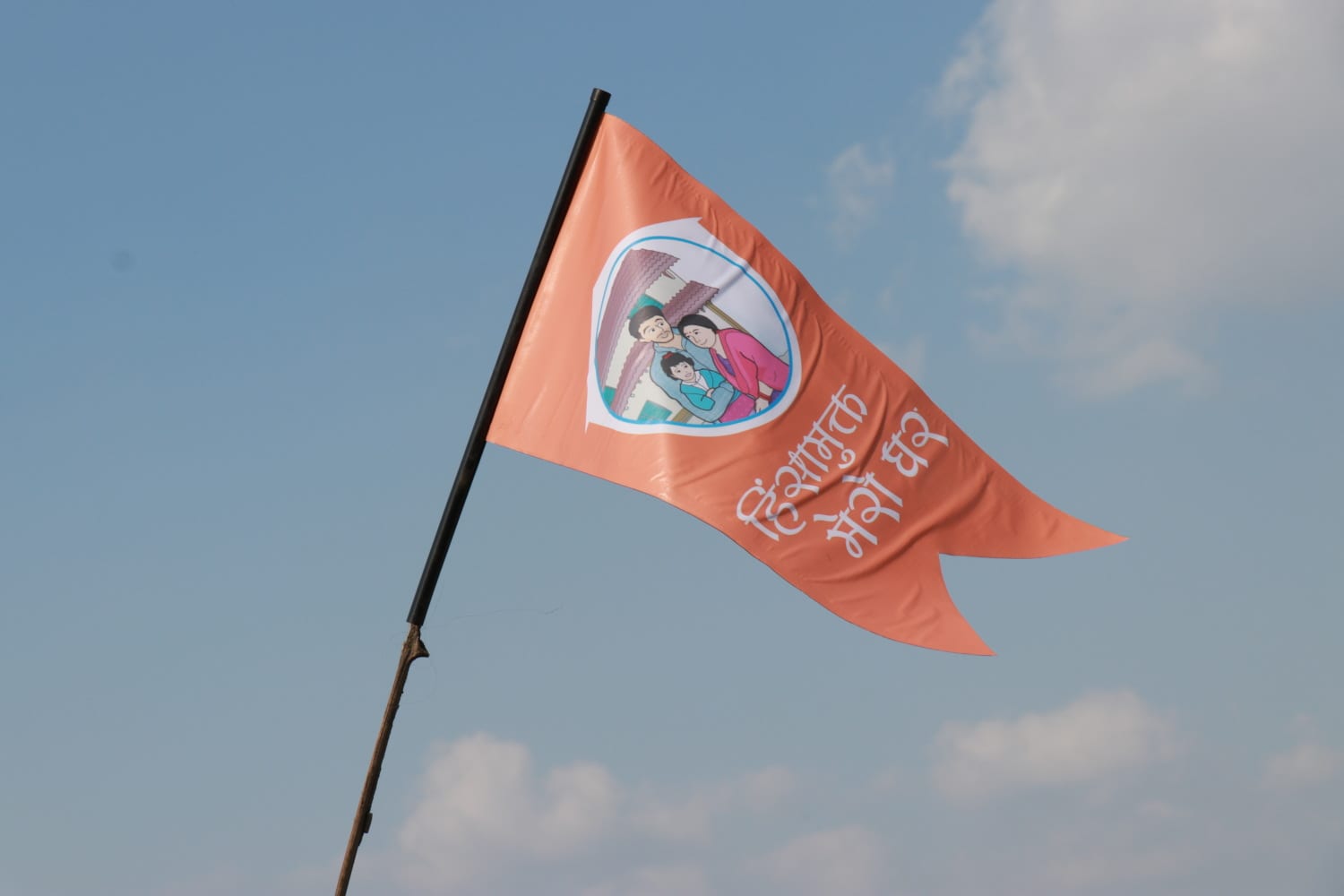

Nepali community waves a flag and commits to being violence-free
In a community in the Parasi district of Nepal, close to 100 homes have put up a flag as a commitment to being a violence-free household as part of a movement to become Nepal’s first violence-free community.
A Project of —
Advancing Gender Equality and Empowering Women and Girls

As soon as I heard about it [the flag], I liked the idea. I found it very innovative, and it is a symbolic way of showing support and being united against gender-based violence. I discussed this with my wife and other family members. Everyone liked the idea. So, we decided to hoist the flag in our home.” – Male respondent
In a community in the Parasi district of Nepal, close to half the homes in the village) have put up flags as a visual commitment to being a violence-free household and as part of a movement to become Nepal’s first violence-free community. The EAI project behind the initiative is supported by the World Bank and Sexual Violence Research Initiative (SVRI)’s Development Marketplace: Innovations to Address Gender-Based Violence grant and is an extension to the groundbreaking Change Starts at Home project.
Selected out of more than 250 proposals by a panel of experts, EAI’s researchers are part of an exclusive team of 11 winners recognized for innovative ways to prevent and respond to gender-based violence. This campaign is a prime example of that.
The flag campaign was launched in partnership with two of our most engaged community Listening Discussion and Action Groups (LDAG) from the Change project. The goal is to not only have as many households as possible publically commit to being violence-free, but to also track the diffusion of positive gender norms as it occurs. To achieve this, each flag is tracked by GPS, which allows our Community Action Researchers to map how norms are diffused through community networks and channels – identifying who are the “early adopters” versus the late followers. Such diffusion data is rare and we hope will help inform the most effective strategies for future community-based, participatory norms change efforts.
With more than 5,500 members, SVRI is one of the largest global research networks focused on violence against women. SVRI supports research by disseminating and sharing knowledge and nurturing collaboration and networking, and improves policy and practice by supporting and funding research and capacity development. It hosts an international forum every two years to advance and expand research on sexual and intimate partner violence.